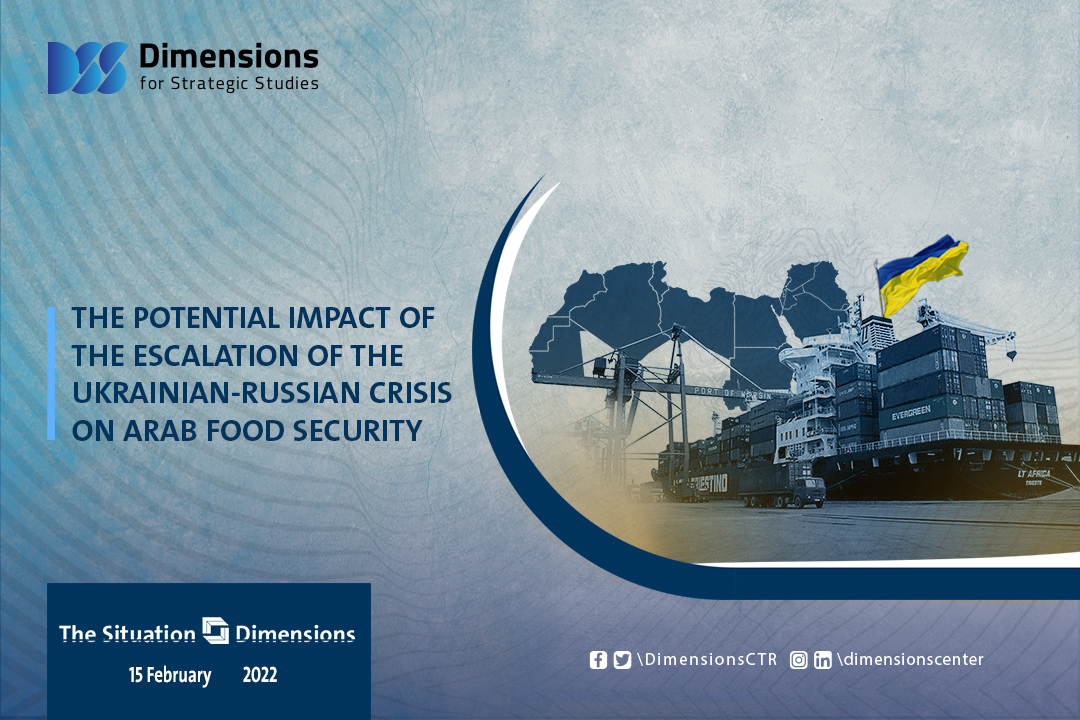
THE POTENTIAL IMPACT OF THE ESCALATION OF THE UKRAINIAN-RUSSIAN CRISIS ON ARAB FOOD SECURITY
2022-02-151577 view
With the escalation of the Russian-Ukrainian crisis, food prices began to rise, and the impact on energy prices was felt, as the Ukraine is considered one of the largest sources of food in the world, especially grain. It is also considered the food basket of Europe and a large number of countries in the world.
Over the past years, many Arab countries have sought to establish trade relations and investments with the Ukraine to maintain its food security.
Egypt is one of the most prominent importers from the Ukraine; as it obtains the largest share of wheat through imports from the Ukraine. The two-way trade of Egypt with the Ukraine amounted to about $1.8 billion in 2021, with wheat and corn being the two most important commodities at an annual value of $1.3 billion; which constitutes approximately 40% of Egypt's imports.
Saudi Arabia is also one of the most prominent investor and importer from the Ukraine. The volume of trade between the two countries is close to one billion dollars. Saudi Arabia imports meat, eggs, barley and tobacco, in addition to some types of grain.
Iraq comes third; it is almost completely dependent on the Ukraine, especially in wheat; as it imported $600 million worth of wheat in 2021.
Among the importers is Lebanon, which suffers from a food crisis at the moment. It imports Ukrainian wheat for about 350 million dollars, and barley for 160 million dollars. Add to these commodities some types of corn and vegetable oils.
Morocco is also on the list of those affected. In 2021, it imported wheat and corn for about $300 million from the Ukraine. Tunisia as well relies heavily on Ukrainian grain, for nearly $300 million.
The imports of Algeria, the UAE and Yemen will also be affected by the events in the Ukraine. The volume of imports for each of them amounts to about half a billion dollars annually, mainly in wheat and corn.
Not only the above mentioned countries are affected; Libya and Jordan are also heavily dependent on Ukrainian wheat. Qatar, Kuwait and Bahrain, on the contrary, do not import any foodstuffs from Ukraine; therefore the impact on them will be limited in this regard.
According to the above data, the deterioration of the security situation in the Ukraine will greatly affect food security in the Arab region; as these countries will face the problem of finding alternatives and bearing higher costs due to the rise in international food prices, especially wheat.





